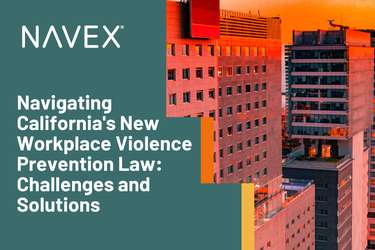How much risk do social networkers expose your organization to? You may very well revisit that question after reading the Ethics Resource Center’s 2011 National Business Ethics Survey and its startling statistics demonstrating how active social networkers view workplace ethics very differently than their co-workers – and how they tend to be treated differently as well.
The survey, which defined active social networkers as those who spend at least 30% of their workday on social network sites, revealed that such employees have a much broader definition of acceptable behavior than the average employee. For example, 42% of active social networkers would blog or tweet negative information about their organization or co-workers versus 6% of others polled. Likewise, 51% of networkers would perform less work to compensate for reduced wages or benefits compared to 10% of non-networkers, and 46% would use company software on their personal computers at home versus 7% of other US workers.
What’s more, active social networkers tend to experience a more negative workplace. The survey found that 42% of them received pressure to compromise standards versus 11% of other respondents, and a whopping 56% experienced retaliation after reporting workplace misconduct versus 18% of non-networkers.
How to explain these surprising numbers? First, the survey didn’t capture how many of the active social networkers were networking as part of their assigned job duties versus how many were doing so on their own initiative. If a significant number fall into the second camp, this would probably explain a lot. After all, if an employee is spending 30% of his time engaging in an activity that hasn’t been approved by his superiors, it shouldn’t be surprising if that same employee has few qualms about the personal use of company software or sending out negative tweets about his employer. In other words, all these activities may be part of a pattern of behavior. Likewise, it would not be surprising if an employee who is perceived to spend a large amount of company time engaging in non-sanctioned social networking were to experience negative reactions from co-workers and managers, including a possible increase in episodes of retaliation.
A second, and more sweeping, explanation is that social networkers truly do perceive ethics in a different way. Social networking, after all, is about sharing information. As the recent debates, protests, and website blackouts over the proposed SOPA and PIPA legislation underscored, people and organizations who share information online on a regular basis tend to have very different views on intellectual property ownership than other parts of our society, especially segments of the music, movie, and related industries that are focused on preventing copyright infringement. An “open source” view of the world in which the free exchange of information is considered an unqualified good would certainly go a long way towards explaining why social networkers tend to operate under a different value system – and often find themselves at odds with others who don’t share that system.
It would be interesting to drill down into the underlying data in an attempt to discover why social networkers do what they do and believe what they believe. The Ethics Resource Center has indicated it plans to capture additional details in a supplemental study, and hopefully that information will be enlightening. Likely there is no single explanation, but some combination of the two scenarios outlined here probably explains much of the current survey’s results.
In the meantime, how should organizations react to this information? Addressing the first scenario is relatively easy – every organization should have a social media policy that makes clear what social media activity is considered acceptable in the workplace. And every company should be cognizant of which employees are active social networkers, whether their networking activities are approved by management, and what steps to take when non-sanctioned activity is discovered. The larger goal is to ensure that gray areas don’t exist where employees take it upon themselves to be their organization’s social networkers, with all the potential negative fallout that may result.
Addressing the second scenario is more difficult. While a clear, well-disseminated, and consistently-enforced social media policy is still crucial, the average social networker’s philosophy on sharing information and ethics in general is likely more a result of technological and generational forces than any particular guidelines that their employers may adopt. In other words, it well may be a sign of the times. Understanding how these forces create a different value system, anticipating this divergence, and allowing for it while still protecting the organization against resulting risks at the same time – these are the challenges every company with a social media presence will eventually face in our brave new world. And who doesn’t have a social media presence these days?






